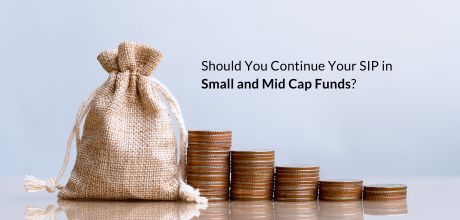3 Tips to select a Mutual Fund scheme

Choose mutual funds based on their vintage, fund size, and the track record of the fund manager. Avoid NFOs and seek guidance from a qualified financial advisor for better investment decisions.
The Mutual Fund industry has grown in leaps and bounds in the recent past. It is estimated that nearly Rs. 20 lakh crores (20 trillion) of investments are now parked into Mutual Fund schemes as on date. Along with booming markets come an inevitable plethora of NFO’s (New Fund Offers) which are best avoided. If you’re new to Mutual Funds, and have zeroed in on the type of fund that you’d like to invest into (equity, debt or hybrid), here are four simple criteria which should determine your choice of fund selection.
Vintage & Track Record
Rather than focusing obsessively on ‘star ratings’ assigned by agencies such as CRISIL, Morningstar or Valueresearch, you should instead evaluate the fund’s vintage and track record instead. Go for a fund that has a track record of at least ten years. Even better, check out how the fund has navigated difficult market phases or volatile periods. For instance, if it’s an equity fund, check how the fund performs ed during the meltdown of 2008. Did it deftly adjust its cash position, and did it de-risk itself prior to the crash, or did it simply follow the herd? It’s easy for funds to make hay while the sun shines – it’s true mettle can only be tested during bearish market cycles.
Fund Size
Go for a fund that’s neither too large, nor too small. If a fund is too small, it’s likely that the talent at the top will at best, be mediocre. It is the larger funds that attract the most talented fund managers. Conversely, a fund becoming too large in size may render it unwieldy and difficult to manage, affecting its performance. This is one of the reasons why many small and mid-cap funds actually shut themselves from fresh subscriptions when they cross a certain size threshold! For diversified or large cap equity funds, stick to those that are in the range of 5,000 to 10,000 Crores. For small and mid-cap funds, its best to stick with funds that have assets under management below 5,000 Crores.
Fund Manager Profile and Track Record
Remember – in the end, individual brilliance at Fund Management will make a difference to a fund’s returns. Before zeroing in on a fund, evaluate the track record of the fund manager who would be taking the investment decisions with your hard-earned money. Avoid funds that are managed by greenhorns with low levels of market experience, even if they carry impressive management degrees or qualifications. Skim through the track records of the other funds managed by the same manager, and (if possible) read their interviews to understand their basic fund management philosophies. Also, look out for fund managers who consistently generate ‘alpha’ or outperformance by taking the occasional out of the box investment call or stock pick; not those who blindly follow the herd to negate their own career risks!
End Note: A qualified Financial Advisor can help you with the evaluation, and eventual selection of a top performing mutual fund. If you’re a first-time investor, its best to seek the support of an advisor before venturing into Mutual Funds.
Your Investing Experts
Relevant Articles
How To Select The Best Mutual Funds For Long Term Goals
Mutual funds offer a compelling way to invest for long-term goals, leveraging professional management and diversification to potentially achieve significant returns. But with a vast array of options available, selecting the best mutual funds for the long term can feel daunting. This guide will equip you with the knowledge to confidently navigate the mutual fund landscape and learn how to select the best mutual fund aligned with your long-term aspirations.
Should You Continue Your SIP in Small Cap Mutual Funds
Investing in small cap funds requires patience and discipline, especially during market corrections. By staying committed to your SIPs and focusing on long-term goals, you can leverage the power of rupee cost averaging and compounding. Don’t let short-term market noise dictate your strategy—remain focused, stay the course, and trust that your disciplined approach will yield results over time.
Systematic Withdrawal Plans (SWP): A Reliable Way to Generate Regular Income
An SWP allows investors to withdraw a predetermined amount from their mutual fund investments at regular intervals, such as monthly, quarterly or annually. The beauty of SWPs lies in their flexibility—they provide consistent income while allowing the remaining investment to continue growing.
.png)


_(2).jpg)